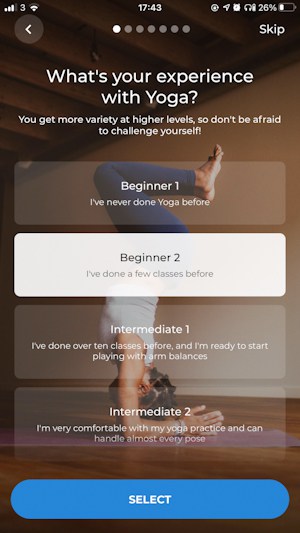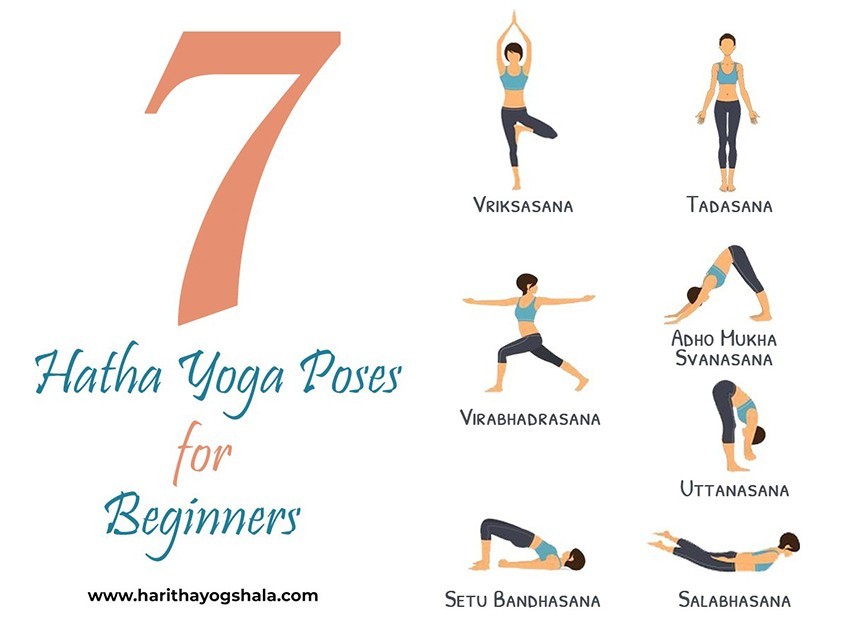
Recent studies suggest that yoga may improve executive functions such memory, attention, concentration and other areas. The benefits of yoga for the brain are numerous, and MRI scans have shown that the practice may improve the brain's overall function. One review of 11 studies that looked at yoga practitioners found significant changes in the hippocampal Volume, a critical brain structure responsible for memory and learning. Yoga may also slow cognitive decline.
MRI scans reveal that yoga has a positive effect on brain function
MRI scans reveal that yoga improves cognitive functions including memory, impulse control and emotional control. In a review of 11 published studies, scientists have shown that yoga significantly increases the volume of key brain regions that are involved in thinking clearly, decision-making, and memory. A study found that yoga has a positive effect on brain volume when it is practiced longer. Additional research is needed in order to understand the precise mechanisms that yoga enhances brain function.

It can increase brain feel-good chemicals
According to a recent study, yoga can boost levels of positive brain chemicals like serotonin or GABA. These chemicals control our feelings of happiness and relaxation. They also regulate how the brain processes rewards. These neurotransmitters can be targeted by antidepressants and anxiolytic drugs. These levels can be significantly increased through yoga. There are many health benefits to yoga.
It reduces pain tolerance
Recent studies show that yoga may increase pain tolerance. The brain's inner insula processes autonomic and nociceptive information, as well as subjective feelings. Increased pain tolerance can be attributed to increased parasympathetic activation as well as increased awareness. But, it is necessary to do more research on how yoga affects insular cortex function and how it influences pain perception. It is often recommended that yoga practitioners adopt an emotionally detached view of their current situation.
It improves executive functions
Executive functions are critical cognitive skills that are crucial for long-term success. Many successful individuals credit their success to executive functions like self-control, flexibility, and creativity. These skills are often acquired along the way. Yogaic science offers clear methods to increase cognitive ability. This article details some of how yoga can be used to support executive function. To learn more, visit our website.
It increases memory
Yoga can improve the condition of your brain, which is one of the many benefits for memory. Meditation can improve memory and the vagus neuron, which controls the brain’s memories center, can help. Cognitive training is one method to improve memory. It involves memory exercises. Although many benefits of yoga are yet to be identified, many have been linked to improved memory. Let's look at some of these benefits.

It improves emotional processing
Yoga exercises can immediately have adaptive effects on heart activity and affective cognitive processing, according to researchers. This may help explain the association between yoga and better emotional processing. Desbordes from Stanford University claims that yoga increases GABA levels, a neurotransmitter in the thalamus that blocks anxiety. In addition, the brain releases other chemicals such as serotonin, norepinephrine, and dopamine that affect our mood, a key factor in anxiety.
FAQ
What foods should I avoid when practicing yoga?
Certain foods can reduce your energy. It can also make you feel bloated, or cause stomach cramps. You might feel tired after the practice.
What are some of the health benefits that yoga has for you?
Yoga originated in India and is an ancient form of meditation. As a way to improve mental well-being and physical fitness, it was developed over centuries by Hindu monks. Many people use yoga to relieve stress and relax. Some people believe that they can increase their flexibility and strength through yoga.
Yoga improves balance, coordination, and is a great exercise option for seniors who want to keep active. It can help you avoid injuries due to falls or other causes.
Yoga can be good for your heart, as it strengthens the cardiovascular system. If you are overweight, have high bloodpressure, or have diabetes, yoga can be a great option.
Yoga can also help with stress, anxiety and depression. For those with arthritis or fibromyalgia, yoga can be especially beneficial.
As you age your muscles lose elasticity. Yoga helps keep your muscles flexible. Yoga can give you more energy and stamina with age.
According to The National Institute on Aging yoga regularly has been shown in studies to reduce symptoms of depression like fatigue and feelings of hopelessness. According to the institute, yoga can lower cholesterol and increase bone density.
Yoga can also ease headaches and back problems. Yoga's slow pace and gentle movements make it particularly effective for reducing muscle spasms and strains.
Are yoga mats necessary?
Not necessarily. Many studios provide mats for use by students. These mats can be easily cleaned and made of rubber.
You can also purchase your mat. A good quality mat will last you several years.
Do I need to warm up before doing yoga?
No. It doesn't matter if you are warming up before starting a yoga class.
Stretching before you go to the gym can help ease stiff muscles.
How long does it take yoga to work?
It takes time to practice yoga, but it is always a good workout. It takes time to increase strength, flexibility, endurance. Start slow, then increase intensity until you reach your optimal level.
Consistency is the key. The more you practice, it is easier to get better.
Who would benefit most from yoga?
Yoga is aimed at people who desire to live a healthier and happier life. People who are looking to improve their balance, flexibility, and posture.
They might also desire to lose weight and gain muscle mass. They may also be interested to reduce stress and anxiety, and achieve peace of mind.
Asthma, diabetes, arthritis, back problems and asthma are all possible disabilities. For these people, yoga is particularly beneficial.
Can women do Yoga?
Absolutely! Yoga is open to all genders.
There are many different styles of yoga for men and women alike.
Statistics
- A 2020 review of 27 studies (1,805 total participants) of yoga interventions in children or adolescents found reductions in anxiety or depression in 70 percent of the studies, with more promising results for anxiety. (nccih.nih.gov)
- Start your Fall off right with 20% off All Access Membership when you sign up by 9/25! (corepoweryoga.com)
- According to the Agency for Healthcare Research and Quality, falls are incredibly common among older adults in nursing facilities. Even the simplest ones can increase the risk of death (24). (healthline.com)
- In comparison, a 125-pound person is estimated to burn 135 calories in 30 minutes of walking (at a pace of 15-minute miles) and 210 calories bicycling at a moderate pace on a stationary bike. (everydayhealth.com)
- Lock in 25% off your Founding Member rate. (corepoweryoga.com)
External Links
How To
Where is the best spot to practice yoga?
There are many ways to practice yoga. Every person is different. The most important thing is to feel at ease in the positions you choose.
Here are some commonly used positions:
Standing poses - These are great for beginners as they allow you to view your body from many angles. It is also easier to focus on your breathing with these poses.
Forward bends - These are useful for opening up tight areas. You can do them sitting down or lying down.
Backbends-Backbends are generally considered advanced poses. You should consult your instructor before you attempt one.
Inversions: Inversions are poses where you balance on your side. This is a challenging but rewarding type of yoga.